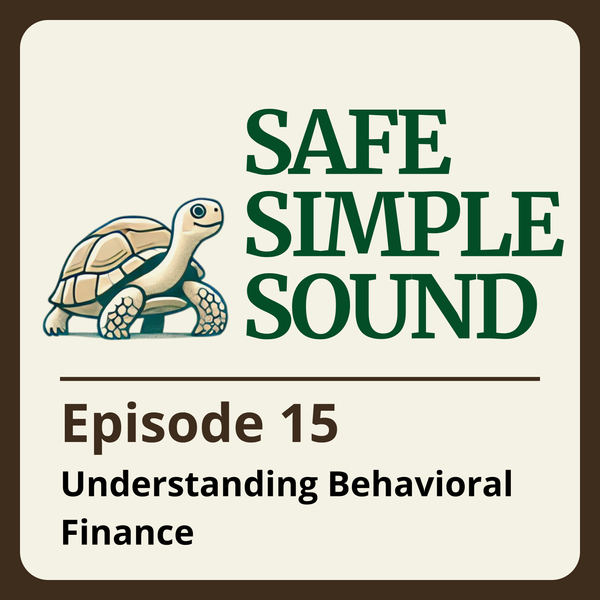Estate Tax Planning: Minimize Your Liability and Protect Your Legacy
Introduction
At SafeSimpleSound, our SECURED beliefs guide us in helping you take control of your financial future while ensuring your legacy is protected. Estate tax planning is a crucial step in preserving the wealth you’ve worked hard to build and passing it on to your loved ones. Through the lens of our values—Safe, Simple, and Sound—we’ll explore the intricacies of estate tax, empowering you to develop a plan that minimizes taxes and maximizes the assets left to your heirs.
Opening Questions
- What happens if you don’t account for estate taxes in your overall estate planning?
- How can you ensure your heirs don’t bear an unnecessary tax burden due to a lack of preparation?
- What are the best strategies for reducing estate tax liability?
Understanding the Estate Tax
Estate tax is a federal tax imposed on the transfer of property after death. The taxable estate includes everything you own or have an interest in at the time of your death—real estate, retirement accounts, personal property, and life insurance policies. The key to effective estate planning is understanding how estate tax applies and utilizing available credits and deductions to reduce the amount of tax owed.
The Estate Tax Process
- Gross Estate Calculation: The gross estate includes all assets owned at death, such as property, bank accounts, and life insurance proceeds. Some assets, like joint property and gifts made within three years of death, are included in the estate for tax purposes.
- Advantages: Ensures all assets are accounted for.
- Disadvantages: The gross estate may increase due to last-minute gifts or transfers, impacting estate tax liability.
- Adjusted Gross Estate (AGE): From the gross estate, certain deductions are subtracted to arrive at the Adjusted Gross Estate. These deductions include funeral expenses, administrative costs, debts, and losses during the administration of the estate.
- Advantages: Lowers taxable estate.
- Disadvantages: Some deductions, such as certain debts, may reduce the net value of assets passed to heirs.
- Taxable Estate: After deductions, the taxable estate is calculated by applying credits and additional taxes such as gift taxes and previous transfers.
- Advantages: Provides clarity on the estate’s tax liability.
- Disadvantages: Failure to utilize all applicable credits can lead to an unnecessarily high tax bill.
Credits and Deductions
- Applicable Estate Tax Credit: As of 2024, the estate tax exemption is $5,389,800. Estates below this value do not owe federal estate taxes. For larger estates, this credit reduces the overall tax liability.
- Marital Deduction: Transfers to a surviving spouse are exempt from estate taxes under the unlimited marital deduction.
- Charitable Deduction: Gifts made to qualifying charities can reduce the taxable estate.
Minimizing Estate Tax Liability
- Gifting Strategies: By utilizing annual gift exclusions and lifetime gift strategies, you can reduce the size of your estate and lower your potential tax liability.
- Life Insurance Trusts: Placing life insurance policies in irrevocable trusts ensures that the proceeds won’t be included in the gross estate, reducing estate taxes.
- Family Limited Partnerships (FLPs): Using FLPs allows for asset valuation discounts, potentially lowering the taxable value of the estate.
Advantages: Helps reduce estate taxes and protect family assets.
Disadvantages: Improper use of these tools may lead to inclusion in the gross estate.
Answering the Opening Questions
- What happens if you don’t account for estate taxes in your overall estate planning?
Without estate tax planning, a significant portion of your estate could be lost to taxes, reducing what is passed on to your heirs. - How can you ensure your heirs don’t bear an unnecessary tax burden due to a lack of preparation?
Proper estate tax planning, including the use of trusts, gifting strategies, and marital deductions, can significantly reduce the estate’s tax liability, ensuring more assets go to your heirs. - What are the best strategies for reducing estate tax liability?
Leveraging credits and deductions, implementing life insurance trusts, and using gifting strategies are among the most effective ways to reduce estate tax liability.
Conclusion
Estate tax planning is an essential aspect of creating a financial legacy. By understanding the estate tax process, applying appropriate deductions, and utilizing gifting and trust strategies, you can protect your heirs from excessive tax burdens. At SafeSimpleSound, we help you develop a sound estate plan that aligns with your values, ensuring a Safe, Simple, and Sound financial legacy for your family.

